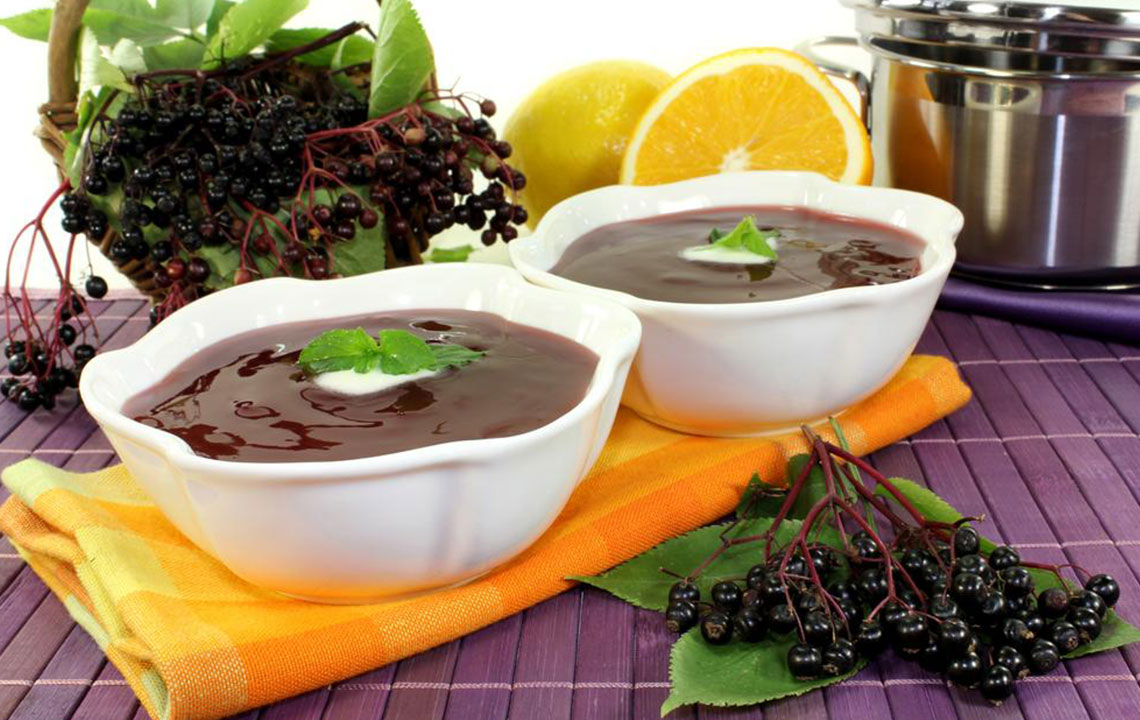Comprehensive Guide to Foods and Drinks That Naturally Alleviate Heartburn Symptoms
Learn effective strategies for managing heartburn with the right foods and drinks. This comprehensive guide highlights natural remedies, dietary adjustments, and quick relief options to alleviate symptoms and improve digestive health. Discover which foods soothe the esophagus, reduce acid production, and prevent reflux episodes, empowering you to take control of your gastrointestinal well-being through informed dietary choices.

Effective Foods and Beverages to Soothe Heartburn Naturally
Heartburn, medically known as pyrosis, is a prevalent condition characterized by a burning sensation in the chest or throat, often resulting from acid reflux. This condition occurs when stomach acid escapes into the esophagus, irritating its lining. While occasional heartburn can be a normal response to certain foods or habits, frequent episodes may be indicative of gastroesophageal reflux disease (GERD), a chronic disorder that requires management and lifestyle adjustments. Understanding the causes and identifying foods that trigger or alleviate heartburn are crucial for effective symptom control.
Common lifestyle factors contributing to heartburn include dietary choices, such as consuming spicy or fatty foods, excessive alcohol intake, smoking, overeating, and lying down immediately after meals. Pregnancy and certain medications also increase susceptibility. Although many foods can worsen symptoms, others serve as natural remedies, providing relief and helping restore comfort. This comprehensive guide explores a wide range of foods and drinks that can help reduce and manage heartburn, emphasizing dietary modifications that promote digestive health and prevent acid reflux episodes.
The Most Effective Beverages for Heartburn Relief:
Herbal teas: Naturally caffeine-free, herbal teas such as chamomile, marshmallow root, licorice root, and slippery elm have calming properties that soothe the esophageal lining and reduce inflammation. These teas can serve as gentle remedies to calm persistent heartburn. It is advisable to avoid mint-based teas like spearmint or peppermint, as they may relax the lower esophageal sphincter and aggravate symptoms.
Low-fat or plant-based milks: Replacing traditional high-fat dairy with low-fat options like skim milk or plant-derived alternatives including soy, almond, coconut, or cashew milk can decrease acid production and prevent reflux. These beverages are easier on the stomach and help maintain a neutral pH balance, reducing the likelihood of irritation.
Non-citrus fruit juices: Juices from vegetables and fruits such as carrots, aloe vera, cabbage, watermelon, cucumber, pear, beetroot, and spinach are gentle on the stomach and can alleviate heartburn symptoms. Conversely, citrus fruits and tomato-based juices are highly acidic and should be avoided during episodes or for those prone to reflux.
Coconut water: Unsweetened coconut water is a hydrating beverage rich in potassium and electrolytes. It can help neutralize stomach acid, promote digestion, and provide soothing relief from heartburn symptoms.
Foods and Strategies That Offer Quick Relief from Heartburn:
Ginger: Incorporating fresh ginger into meals or sipping ginger tea can act as a natural anti-inflammatory agent, providing immediate relief from heartburn. Ginger aids digestion and reduces nausea, making it an excellent remedy for indigestion-related discomfort.
Apple cider vinegar: Diluting a tablespoon of apple cider vinegar in a glass of warm water and consuming it post-meal can help balance stomach acidity. This practice often alleviates reflux symptoms by improving digestion and preventing acid buildup.
Chewing gum: Chewing sugar-free gum for approximately 30 minutes after eating stimulates saliva production, which acts as a natural buffer to neutralize stomach acid. This simple habit can significantly reduce heartburn episodes.
Almonds: Eating a handful of almonds provides healthy fats and oils that can quickly help neutralize stomach acid, offering fast relief from burning sensations in the chest. Almonds also contain magnesium, which may contribute to digestive health.
Understanding a Low-Acid Diet:
A low-acid diet focuses on consuming foods with higher pH levels to minimize irritation and inflammation in the gastrointestinal tract. This dietary approach is recommended for individuals experiencing frequent heartburn or acid reflux episodes.
Acceptable foods within this diet include artichokes, carrots, cauliflower, cantaloupe, beans, broccoli, and Brussels sprouts. These foods are naturally less acidic and promote digestion without aggravating symptoms.
It is essential to avoid or limit intake of highly acidic foods such as citrus fruits, tomatoes, fried foods, apples, salsas, and pickled vegetables, which can provoke reflux and discomfort.
Personal tolerance varies; hence, individuals should tailor their diets based on their responses and consult healthcare providers for personalized guidance.
The Role of Probiotic Foods in Managing Heartburn:
Incorporating probiotic-rich foods like sauerkraut, kefir, kombucha, and yogurt supports the growth of beneficial gut bacteria, essential for healthy digestion and reducing gastrointestinal inflammation.
Consistent intake of these foods may improve gut health, enhance motility, and reduce the frequency or severity of acid reflux episodes.
Opt for homemade or natural probiotic foods, excluding flavored or artificially sweetened versions that may contain additives or acids potentially triggering heartburn.
Maintaining dietary awareness and choosing the right foods can significantly improve quality of life for individuals suffering from frequent heartburn. Combining these dietary tips with lifestyle modifications, such as maintaining a healthy weight, avoiding tight clothing, and elevating the head during sleep, can further enhance symptom management. Always consult a healthcare professional for persistent or severe reflux symptoms to develop a comprehensive treatment plan tailored to your needs.





